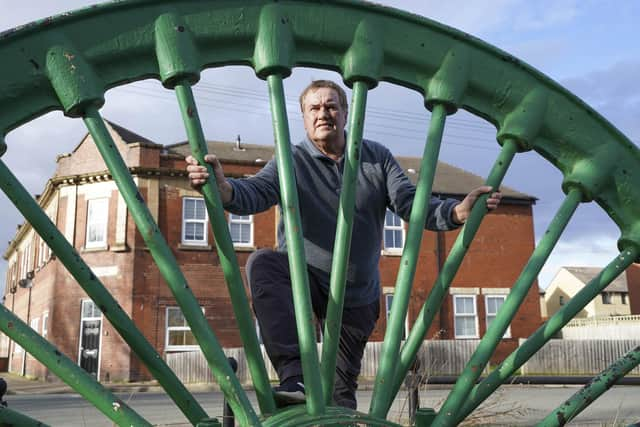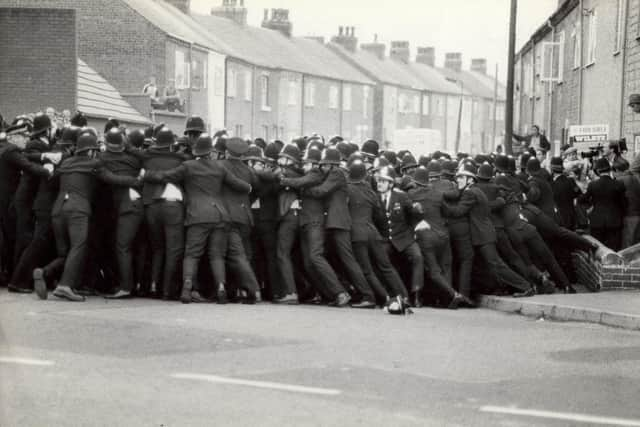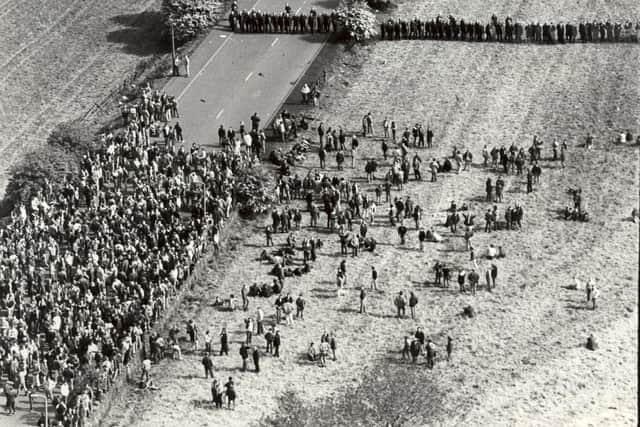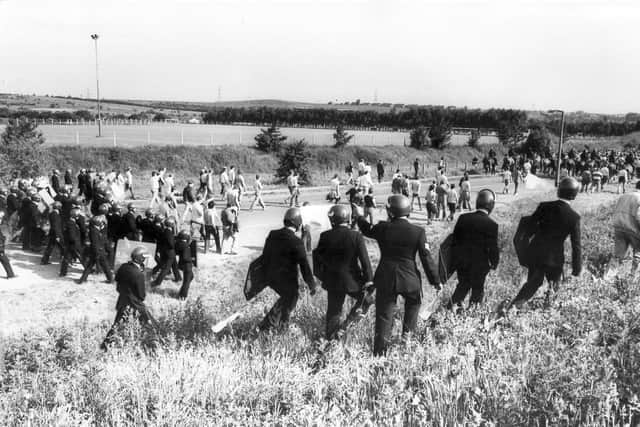MINERS’ STRIKE 40TH ANNIVERSARY: Battles at Orgreave and Fitzwilliam changed attitudes towards police
and live on Freeview channel 276
Striking miner Denis Doody said bitterness against the police fuelled those who had witnessed trouble in Fitzwilliam and further afield at the Battle of Orgreave.
Mr Doody was one of the Fitzwilliam 9 arrested on July 1984 in the village when fighting broke out between the police and activists.
Advertisement
Hide AdAdvertisement
Hide AdIt was one of the events that, alongside the Battle of Orgreave, changed perceptions of the police.


He said: “These were issues that upped the ante. That was a clear demarcation line.
"The idea of community policing finished that day. They were seen as being part as parcel of the force Thatcher had amassed to fight against the NUM.”
Mr Doody was arrested the following day and his brother was seriously injured.
Nine were charged with breaching the peace.
Advertisement
Hide AdAdvertisement
Hide Ad

Video footage from the time shows campaigners protesting outside what was then Castleford Magistrates’ Court.
Mr Doody was acquitted with one other on the nine.
The remaining seven were convicted.
The coking plant at Orgreave was the site of one of the most brutal claches between pickets and police officers, on June 18, 1984.


It was one of the most violent clashes in British industrial history.
A total of 71 picketers were charged with riot, which at the time could carry a sentence of life imprisonment, and 24 with violent disorder.
Advertisement
Hide AdAdvertisement
Hide AdThe Independent Police Complaints Commission decided in 2015 it would not launch a formal enquiry as it said too much time had passed for the allegations to be pursued.
Despite the decision, the body, which was replaced by the Independent Office for Police Conduct in 2018, found evidence of excessive violence by officers, from police exaggerating violence, and perjury by officers.


It is often considered a turning point in the strike.
Mr Doody said: “We had a lad from Fitzwilliam nearly killed at Orgreave. It more than laid a marker down the police would do whatever necessary to defeat the NUM. Some of the beatings were horrific.
“From Orgreave to the end we continued picketing. The villages here were incredible. I heard none at all wanting to go back to work. They were prepared to go on as long as necessary until we won.”
Advertisement
Hide AdAdvertisement
Hide AdHe said the Orgreave and Fitzwilliam incidents, among others, lead to a breakdown between mining communities and the police.
He said: "It led to complete distrust of police, the police were hated after that.
“They weren't held in high esteem but that night alienated everybody against them.
“There were regular pitched battles between police and pickets. It was beginning to resemble West Belfast.
Advertisement
Hide AdAdvertisement
Hide Ad"It was moving in that direction except the pickets weren't armed.
"It was certainly heating up and there was no love lost between any of the constabularies and us.
"They were there to join in destroying our communities. They went way beyond what we would have expected.
"They introduced all kinds of measures I believed would have been in breach of people's human rights. And they got away with it.”